Kalvi Seer borrows a gifting custom that involves the local community to donate much needed equipment for schools.
Mr R Selvakannan, the headmaster of Panchayat Union Primary School, K Paramathi, in Karur district of Tamil Nadu, came up with the idea of Kalvi Seer in 2014. A movement which urged parents to donate materials needed in their children’s schools, it succeeded in involving the community, caught the imagination of many and led to the State Government allotting funds to organise Kalvi Seer in government schools. Selvakannan is one of two teachers from Tamil Nadu to win the National Award in 2018.
Excerpts from an interview with him:
How do you feel about having received this award?
I joined this school when I came to Class 6. This school is actually 2 km away from my house and so I would spend most of my time here, almost 24×7. When I started teaching here, I would be at the school even during holidays trying to do my best to improve the school’s functioning. Noticing my efforts to make this school a better place, the people from the community believed my hard work would pay off and I suppose it has. I’m happy that my efforts are acknowledged through this national award.
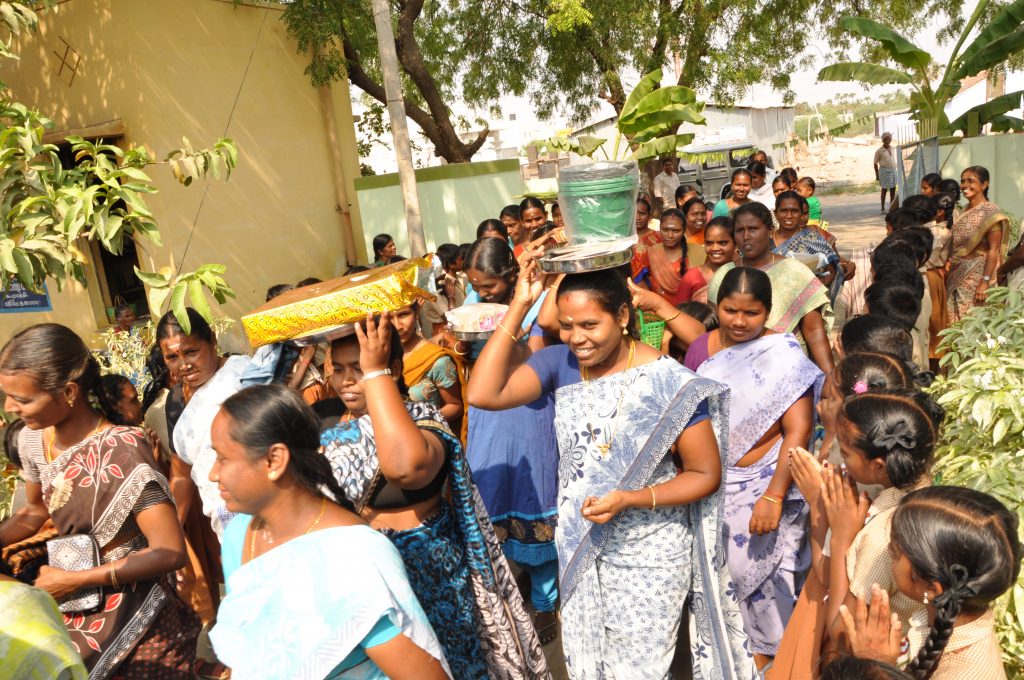
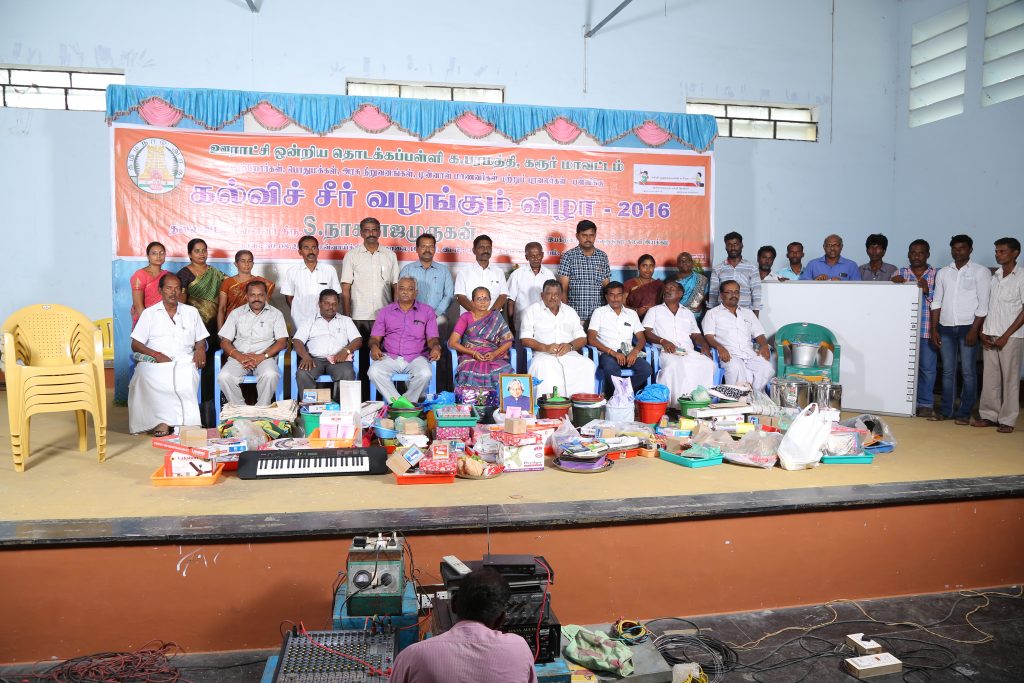
Can you tell us more about Kalvi Seer?
In the rural parts of our state there is the custom of giving ‘seer’ or gifts during occasion and events. The seer usually consists of things that are required on that occasion. Adapting the concept, we tried to create a ‘Kalvi Seer’ (Gift to Education) in which the parents fulfil the basic needs of a school by giving them as gifts to the schools. This gift can include books, dusters, chalk, charts and much more. By doing so the community takes its rightful place in society as a social contributor. The parent community is immensely satisfied to
see its gifts being used by our school in the most appropriate way. Usually the government
allocates Rs. 10,000 per month as contribution towards maintenance expenses. A school with a lesser strength of students would receive up to Rs. 1-1.50 lakh per annum for expenses.
We receive a lot of support from parents who are attached and involved with schools. To create a bond and to get the parents involved we started this concept with a few parents, holding a meeting in 2014. Initially, 4-5 parents showed interest. As this was a new idea we received quite a bit of publicity in the media right in the first year and moved from parents’ contribution to a community’s involvement. We collected more than Rs. 4 lakh. Since then we would plan our requirements for the upcoming year for schools in need and on one particular day, offerings by the community would be made in a grand, festive manner, with a traditional seer format where the gifts brought by people would be paraded, with a music band too! In five years, we achieved up to Rs 18 lakh worth of contributions through this initiative. The TN government has already passed an order to conduct Kalvi Seer in all schools across TN. Fifty per cent of schools have already started this concept.
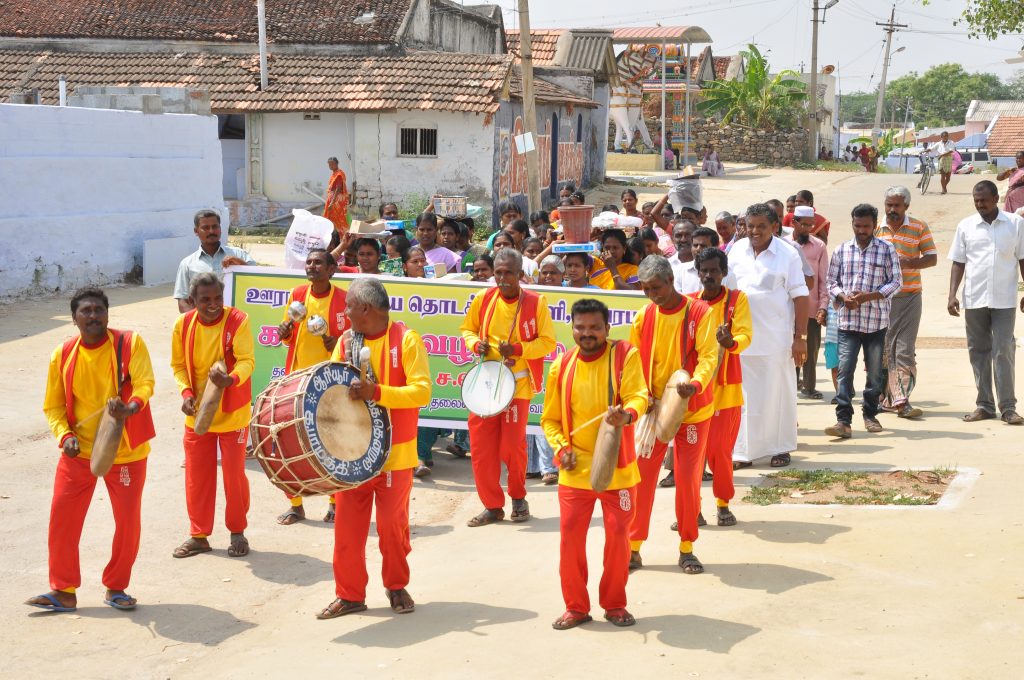
By implementing this, the responsibility of fulfilling the needs of education shifts from the schools and teachers to the parents. How do you feel about to this?
Parents are immensely satisfied after being involved in such activities of the school and they have referred other parents to our school for admission. We have had a good and consistent rise in admissions. Kalvi Seer has created a good bond between the schools, teachers and the parents.
What are the steps you have taken to address the issue of bettering students’ learning?
We are the first government school to have brought smart classrooms into schools. There is
so much information available on YouTube. When projected on a larger screen in a classroom, we are able to get the attention of a student more easily than when teaching with a textbook and blackboard. Every day, we involve the students in at least one non-curricular activity such as music, drawing, karate or yoga, which freshens the minds
of the students and allows them to concentrate more than ever in the classroom.
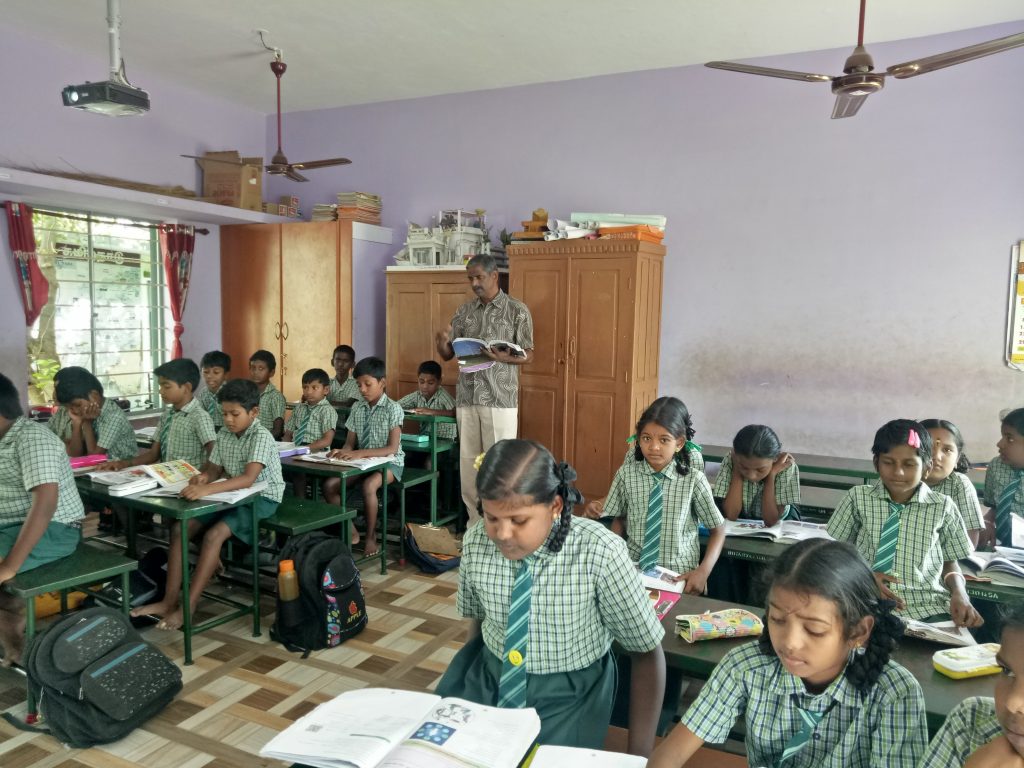
Recently we have heard of many government schools closing. What do you think is the
reason for this?
NITI Aayog had announced that schools with less than 30 students’ strength must close because it affects finances. When schools get closed, because of mobility/transport issues in villages primary school children drop out of school rather than join another which may be far from their homes. In such a case what was 106 primary schools in our district has been brought down to 6-7 schools as the others held a students’ count less than 30. To address the issue, with the support of Rotary Club we managed to conduct meetings with teachers from such schools to educate them on the importance of increasing the strength of the school to avoid unemployment.
What do you think of TN schools conducting public exams in Classes 5 and 8?
Due to the recent ‘No Detention’ policy of students till Class 10, there are chances that a student may actually not be able to fulfil basic concepts at that level. Also many times the teachers try to create a question paper with the concepts they attempted to teach in a classroom. To avoid this a public/ common examination is necessary. More than anything, a common question paper exam will try to evaluate under a standardised pattern. We need not call it a public examination. Instead it can be a common question paper so that small
children will be less stressed and not be afraid of facing it.

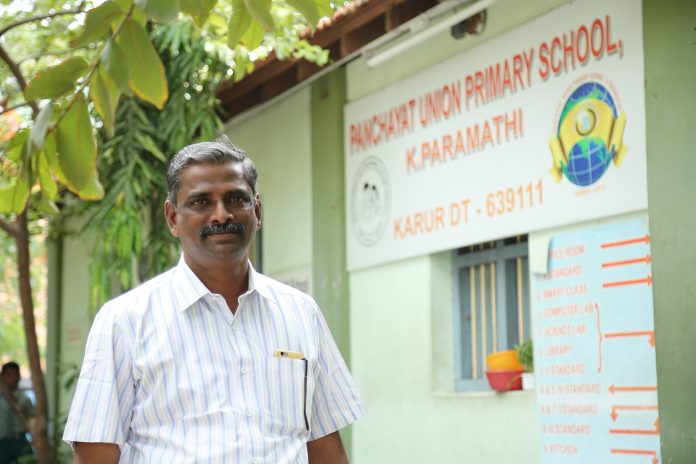






very innovative approach taken by an educationist is brought to lime light by the LearnEd Talk team.
Congratulations